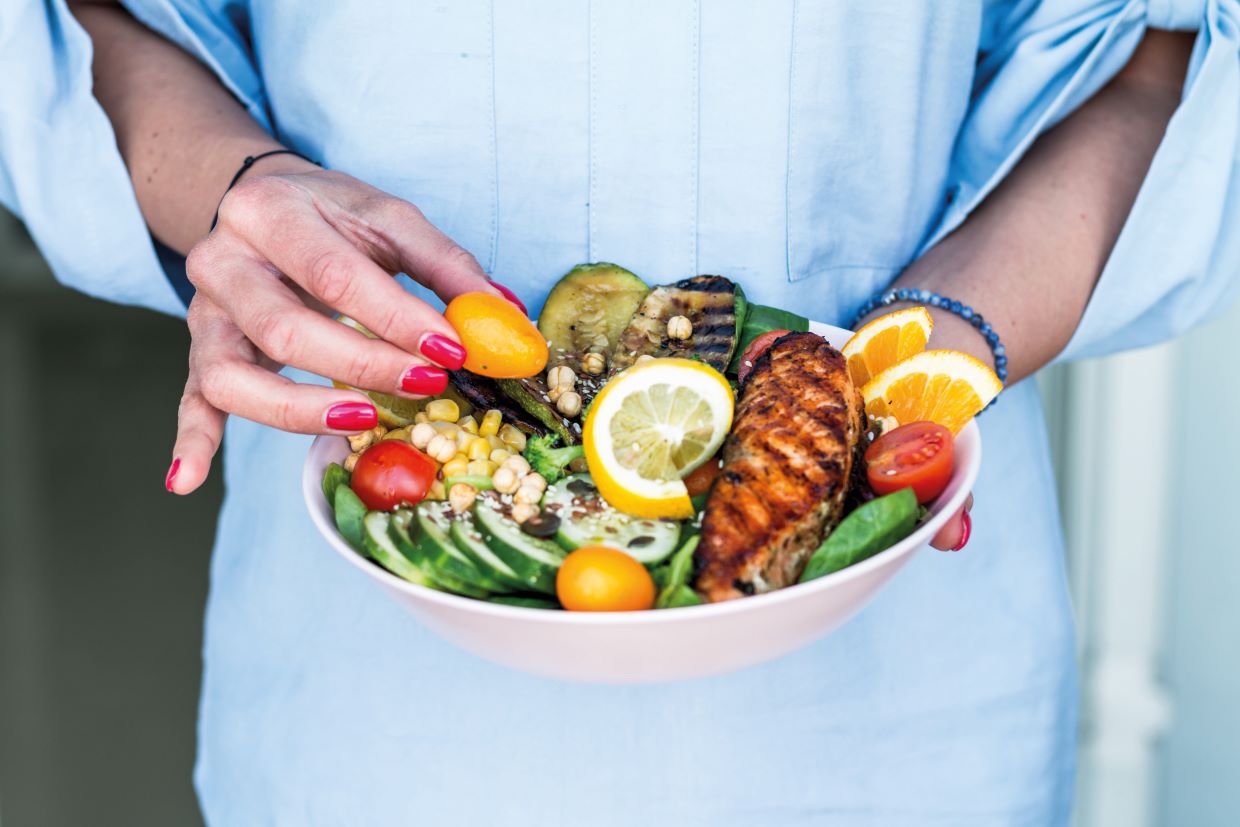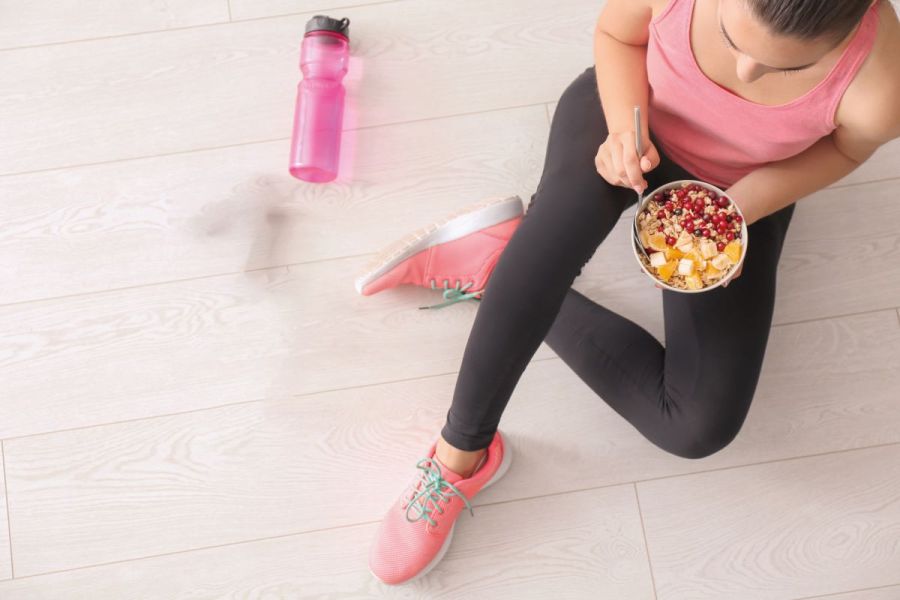Declining oestrogen means that your body’s fuel needs can change during the menopause. Nutritionist Rob Hobson shares his top menopause nutrition tips to help you support your active lifestyle…
During the menopause, our bodies go through several changes. These hormonal shifts can wreak havoc on our bodies, causing a range of uncomfortable, and at times debilitating, symptoms. In turn, these symptoms can interrupt our day to day lives, including our nutrition and fitness regimes.
Related: Lavina Mehta MBE: how to stay fit during the menopause
If you’re beginning to experience menopause or perimenopause symptoms, but you want to improve or maintain your fitness, try out the following nutrition tips to fuel your body…
How to fuel your body for fitness during the menopause
1. Replenish your declining oestrogen
The loss of oestrogen is responsible for many of the symptoms associated with the menopause, but improving your nutrition by adopting a diet that is composed of unprocessed foods may help. This means eating foods in their most natural state.
Many of these foods contain plant compounds called ‘phytoestrogens’, which behave similarly to oestrogen but with a fraction of the effect. Eating a diet rich in these foods may help to alleviate milder symptoms. Aside from this, a diet rich in these foods can help you maintain a healthy weight and protect your heart health, as disease risk increases in the absence of oestrogen.
Focus on foods such as beans, pulses, lentils, whole grains, fruit, nuts and seeds. Soy foods are particularly rich in plant oestrogen and can be a valuable addition to the diet. Try switching to soya milk, and you can use tofu (available in a marinated form that is much easier to use) in meals such as stir-fries or have it scrambled for breakfast.
2. Maintain muscle mass
Muscle mass decreases during the perimenopausal years, and this can be detrimental to sports performance. Maintaining muscle mass keeps you strong and preserves bone density which, in turn, can help prevent injury. What’s more, having a higher muscle-to-fat ratio supports a healthy metabolism, which can benefit weight management.
Try to aim for 1.2-1.4g protein per kg bodyweight. To promote muscle protein synthesis after training, aim for 25g of protein (often more conveniently acquired by drinking a protein shake). The remainder of your protein should be spread throughout the day by including some with every meal.
Maintaining body weight may become more of an issue during perimenopause and menopause, and it is not uncommon for fat to accumulate around the middle at this time. Periodised eating is an excellent approach to help manage this. Plan the amount of energy you consume with the amount of exercise you do.

3. Eat to boost your bone health
Protect your bone health as a priority. The menopause can lead to a more rapid loss of bone density, and a low bone density can put you at greater risk of injuries such as fractures. This is particularly important for women at greater risk of osteoporosis, including those with a family history of the condition, women diagnosed with RED-S (relative energy deficiency in sport) earlier in their sporting career, or those who have maintained a very low body weight as adults.
Related: Eat for bone health: nutrition tips for stronger bones
You can help preserve bone density during menopause by eating calcium-rich foods such as dairy, green leafy vegetables, pulses, nuts and seeds (three-to-four servings daily). Make sure dairy alternatives are fortified with calcium. And consider a calcium and vitamin D supplement such as Healthspan Calcium and Vitamin D3 to support bones (£9.95).
What supplements will help me to stay active during the menopause?
Alison Cullen, nutritional practitioner at A.Vogel, says:
‘Including isoflavone-rich foods in your diet regularly allows your body to make use of the natural plant oestrogens they contain, which can help even out the fall of your own oestrogen levels. Examples of these types of foods include fermented soya and nuts. If your periods are starting to tail off, get further apart or get lighter, products such as A.Vogel’s Menopause Support Tablets (£7.75) contain soya in a fermented form, and provide 50mg of bioavailable phytoestrogenic soy isoflavones per day.
‘Anxiety and fatigue are also key symptoms in perimenopause and menopause, and, for many, these can be an indicator that things are changing. Magnesium, potassium, zinc and vitamin D can help. After exercise, replacing vital nutrients with a mineral drink such as A.Vogel’s Mineral Balance Drink (£7.25 for 7×5.5g sachets) is a great way to help improve energy and replace lost electrolytes.’
Related: Andrea McLean on the benefits of exercising during menopause








